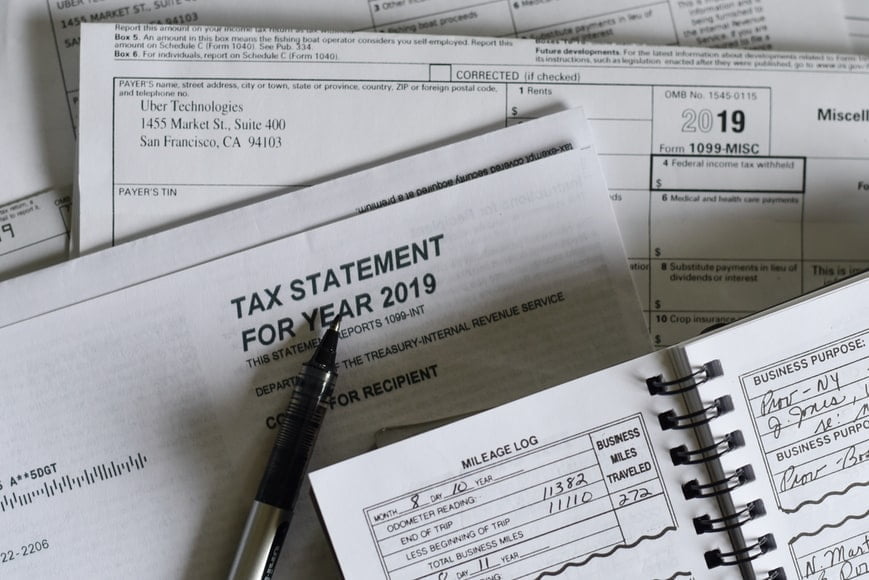Understanding Crowdfunding Websites For Nonprofits & The Tax Bracket You Might Fall Into
by Abdul Aziz Mondal Finance Published on: 03 November 2021 Last Updated on: 08 October 2024

Crowdfunding campaigns are great for raising capital for your initiatives. We’re talking here about millions of dollars coming to your bank accounts. All this money cannot pass under the government’s systems without notice, leading to taxation.
So, the answer to the question “Do I have to pay taxes when I run a crowdfunding campaign?” is a “Yes.” Before getting too excited about those millions raised, you must sit down and see what taxes you have to pay.
This prepares you to plan your expenses accordingly after precisely calculating the remaining profits.
What Is Crowd Funding?
We all need help from time to time. Crowdfunding ensures that the deserving person receives the necessary aid in terms of funds. Digital or remote crowdfunding is a recent phenomenon.
Crowdfunding pages allow individuals to post their requests and receive the necessary help they need. These websites usually do this for free and do not turn other people’s misery into something marketable.
Therefore, let us understand the basics before diving deeply into the subject.
Types of Crowdfunding and Their Taxing Policies
We have three types of crowdfunding models, and each of them has a different tax policy. Platforms such as Kickstarter and Indiegogo use the latter system of fundraising.
Equity crowdfunding is the most common fundraising method. The best part about equity finding is that it isn’t subjected to paying crowdfunding taxes.
However, the business has to pay capital gains tax for sales over their profits. Several crowdfunding applications, such as WeFunder, use this method of funding.
Donation Crowdfunding doesn’t involve any exchange. Donators give money to causes they believe in. IRS states that only when donors receive products or services in exchange for their donation is the money taxable.
Rewards-based crowdfunding is when donors or backers are promised a product or service in exchange for their contribution. As mentioned, this crowdfunding method is subject to taxes.
At the point of reaching $20K+ or over 200 donations, you must file a Form 1099-K file provided by the crowdfunding platform. A copy of the file goes to the IRS.
Please meet the 20k threshold to ensure it is manageable. In such cases, you will not be able to receive the 1099-K. Therefore, keep the payments recorded for reference during this time.
Crowdfunding Platforms and Their Taxing Policies
As per data and findings, it was observed that the US government recognizes crowdfunding as income. As such, the amount is taxable by the government since the platform offers a rewards-based crowdfunding service.
However, you must remember that this rule and regulation varies according to state. Therefore, you must approach the subject with clarity and context in order to know what is what.
Filing Your Campaign Taxes
You will be subjected to income or sales tax after crowdfunding. Each country has different rules on tax remittances.
It could either require you to pay them periodically during the year or at the end of it. Your state revenue office website should have more detailed information on the tax filing deadlines and payment requirements.
Businesses based in the US should file their taxes before April 15th. Even if the year has passed, you can still file taxes until this date. In other words, if you organized a crowdfunding campaign in 2021, you can file taxes until April 15th, 2022.
Pay Fewer Taxes After Deductions
Since crowdfunding marketing campaigns are regarded as business, you’re taxed for the remaining amount after paying operating expenses. For this, you need to provide the IRS with your receipts covering these payments. Two other deductions that follow are these.
Product Research and Development: All the costs of developing your product and conducting more in-depth research are deductible from your budget. This includes producing prototypes, filing patents, and manufacturing the final products.
Fundamental Start-up Operations: Expenses needed to get your business ready for the marketplace are known as start-up expenses.
These involve employee training, research, and advertising costs for the launch, among other costs. Expenses summing up to $5,000 until the first day of your campaign are justifiable under this categorization.
Top Crowdfunding Websites For Nonprofits
We have mostly covered the basics of crowdfunding. Now, it is time to dive deep and look at some of the best and most prominent crowdfunding websites for nonprofits.
Just remember that this is not a ranking list. Instead, it is an informative list that should help you understand your options.
FundRazr
Fundrazr is one of the best crowdfunding websites for nonprofits. This is primarily because it comes with an easy-to-setup array and affordability.
The best part about the website is its ability to provide choices to its clients. Users can easily choose between different crowdfunding techniques at no additional cost.
Fundly
Fundly is the new kid on the block. However, the new kid has already made a name for himself. The website went live back in 2009 and has managed to raise around $330 million till January 2024.
The application is not exactly free. However, the platform charges a meager 4.9% of the total campaign revenue. Therefore, it is one of the best crowdfunding websites for nonprofits.
GoFundMe
GoFundMe is one of the most popular crowdfunding applications on the market. The platform has singlehandedly crowdfunded relief for the survivors of hurricanes, droughts, etc.
This is one of the only names in this list that also operates internationally. However, it has not gone entirely global.
Conclusion
In summation, your crowdfunding campaign is subjected to taxation. Especially when it’s a rewards-based campaign. However, you still get to profit from deductions.
It’s essential that you don’t lose your paperwork for every purchase made within the business to profit from these deductions.
Also, the same principle is applicable if you are using Indiegogo and don’t pass the $20,000 fundraising limit together with the number of 200 donations.
You have to go through the saved receipts yourself and calculate the taxes. Otherwise, if you reach the objective, you’ll receive a copy of Form 1099-K, which you can fill out.
Additional Reading:



































































































